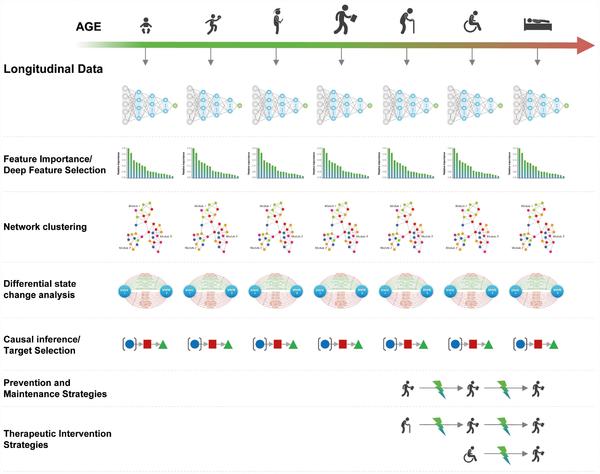The deep age predictors can help advance aging research by establishing causal relationships in nonlinear systems.

Credit: Correspondence to: Alex Zhavoronkov email: [email protected]
The deep age predictors can help advance aging research by establishing causal relationships in nonlinear systems.
Deep aging clocks can be used for identification of novel therapeutic targets, evaluating the efficacy of various interventions, data quality control, data economics, prediction of health trajectories, mortality, and many other applications.
Dr. Alex Zhavoronkov from Insilico Medicine, Hong Kong Science and Technology Park, in Hong Kong, China & The Buck Institute for Research on Aging in Novato, California, USA as well as The Biogerontology Research Foundation in London, UK said “The recent hype cycle in artificial intelligence (AI) resulted in substantial investment in machine learning and increase in available talent in almost every industry and country.”
Over many generations humans have evolved to develop from a single-cell embryo within a female organism, come out, grow with the help of other humans, reach reproductive age, reproduce, take care of the young, and gradually decline.
Considering the average age of the Olympic athlete, the age of optimal performance can be safely defined as 20-30.
Lifestyle and behavioral modifications may help slow down the decline and keep the organism in the best possible state for its chronological age, a term commonly referred to as healthy aging.
To understand the differences between the healthy aging and unhealthy aging, evaluate the effects of the many lifestyle choices and a variety of emerging longevity interventions, it is essential to be able to track the rate of aging and develop a comprehensive set of aging biomarkers.
The Zhavoronkov Research Team concluded that Developing comprehensive granular multi-modal aging clocks will help get a better understanding of the aging processes, establish causal relationships, and identify preventative and therapeutic interventions.
One of the many promising applications of the deep aging clocks built into the generative adversarial networks is generation of synthetic biological data with age as a generation condition.
###
Full Text – https:/
Correspondence to: Alex Zhavoronkov email: [email protected]
Keywords: artificial intelligence, aging clock, deep learning, deep aging clocks aging biomarkers
About Aging-US
Launched in 2009, Aging-US publishes papers of general interest and biological significance in all fields of aging research as well as topics beyond traditional gerontology, including, but not limited to, cellular and molecular biology, human age-related diseases, pathology in model organisms, cancer, signal transduction pathways (e.g., p53, sirtuins, and PI-3K/AKT/mTOR among others), and approaches to modulating these signaling pathways.
To learn more about Aging-US, please visit http://www.
Aging-US is published by Impact Journals, LLC please visit http://www.
Media Contact
18009220957×105
[email protected]
Media Contact
Ryan James Jessup
[email protected]
202-638-9720
Original Source
https:/
Related Journal Article
http://dx.




